Ischemia vs. Infarction: What’s Happening to Your Heart?
Have you ever puzzled what the difference is among myocardial ischemia and myocardial infarction? Maybe you’ve heard those terms tossed round on the doctor’s office or in a health article, and that they sound kind of similar—like they’re each awful information to your coronary heart. Well, you’re not incorrect, but they’re no longer the equal aspect. Understanding what units them aside should simply be a sport-changer on your health. Picture this: myocardial ischemia is like your coronary heart waving a touch pink flag, pronouncing, “Hey, I’m now not getting sufficient blood right here!” Myocardial infarction, although? That’s when the situation escalates to a full-on emergency—a coronary heart assault. Let’s destroy it down collectively in a way that’s smooth to understand, because your coronary heart merits a few serious TLC.
I’ll permit you to in on a bit tale to kick things off. My friend Joseph turned into the picture of health—or so we concept. He loved hitting the basketball court and never skipped a workout. But at some point, he commenced feeling this bizarre tightness in his chest while he become going for walks around. It’d come and go, so he brushed it off. Turns out, it turned into myocardial ischemia—his coronary heart wasn’t getting sufficient blood flow. The medical doctors stuck it early, gave him a few meds, and instructed him to chill out a piece. Fast forward a year, and growth—he’s hit with a crushing chest pain that wouldn’t quit. That changed into a myocardial infarction, a coronary heart attack. Scary stuff, right? His tale stuck with me, and it’s why I want to walk you via those two situations so you recognise what to observe for.
Definitions and Differences: Breaking It Down
Alright, permit’s get to the nitty-gritty. What precisely are myocardial ischemia and myocardial infarction, and how are they one in every of a type? First up, myocardial ischemia. “Myo” method muscle, “cardial” is coronary heart, and “ischemia” is all about decreased blood go with the flow. So, it’s whilst your coronary heart muscle isn’t getting enough blood—and with it, oxygen—to do its task nicely. This normally occurs because the coronary arteries, those little highways that feed your coronary heart, get narrowed or blocked, often by using plaque buildup. You might experience chest pain, referred to as angina, but right here’s the best information: it’s usually reversible in case you catch it in time.
Now, myocardial infarction. That’s the massive one—aka a heart assault. “Infarction” method tissue death, so that is while a part of your heart muscle dies due to the fact the blood flow gets absolutely cut off, generally through a blood clot sealing the deal on an already narrowed artery. No blood, no oxygen, and that coronary heart muscle begins to check out permanently. Unlike ischemia, this harm sticks around, which is why it’s a lighting-and-sirens emergency.
Here’s the large difference in a nutshell: myocardial ischemia is like a caution signal—your heart’s crying for help, however you could nevertheless turn matters around. Myocardial infarction is what happens whilst that cry is going unanswered for too long, and the harm is finished. One’s a heads-up; the other’s a tough forestall. Knowing this may help you discern out whilst to do so—and accept as true with me, timing is the whole thing together with your heart.
Causes and Symptoms: Why It Happens and How It Feels
So, what reasons those heart hiccups? For each myocardial ischemia and myocardial infarction, the principle perpetrator is commonly coronary artery disorder (CAD). Picture your arteries like pipes, and over time, gunk—plaque made of cholesterol, fat, and different stuff—builds up inner them. This narrows the pipes, slowing down the blood go with the flow in your heart. Stress, smoking, excessive blood pressure, and diabetes can speed up this procedure, making it more likely you’ll run into trouble.
With ischemia, such things as a unexpected artery spasm—wherein the artery tightens up out of nowhere—or maybe low oxygen degrees on your blood (say, from anemia) can also reduce off that go with the flow quickly. For infarction, it’s generally that plaque breaking open, triggering a clot that slams the door shut on blood glide completely. Either way, it’s your heart announcing, “I need assist!”
Now, how do you are aware of it’s occurring? The signs are your body’s way of waving at you. For myocardial ischemia, you might be aware:
- A tightness, stress, or pain for your chest—angina—particularly while you’re active or harassed. It would possibly ease up whilst you relaxation.
- Feeling out of breath, like you may’t pretty seize it.
- A wave of tiredness or perhaps a few dizziness.
It’s sneaky, though. Some folks, particularly women or older people, might not experience classic chest ache. Instead, they get jaw pain, nausea, or simply feel “off.” Ever had that manifest? Don’t ignore it—it can be your heart speaking.
For myocardial infarction, it’s an entire unique level. Think:
- A heavy, squeezing chest pain that sticks around, even if you take a seat down.
- Pain shooting to your fingers, neck, jaw, or back—adore it’s spreading out.
- Sweating, nausea, or a “something’s virtually wrong” vibe.
If that hits you, don’t wait. Call 911. Seriously, every 2nd counts when your coronary heart muscle’s on the road.
Diagnosis and Treatment: Figuring It Out and Fixing It

Okay, so how do medical doctors tell if it’s ischemia or infarction? They’ve got some cool gear up their sleeves. For myocardial ischemia, they may hook you as much as an electrocardiogram (ECG) to test your heart’s electric alerts—any bizarre patterns may want to mean blood float’s off. A pressure test is another pass-to: you hop on a treadmill (or get a med to mimic exercising), and they watch how your coronary heart handles it. If they want a closer appearance, an angiogram—where they thread a dye thru your arteries—shows precisely in which the blockages are.
For myocardial infarction, it’s all approximately pace. An ECG can spot telltale signs and symptoms like ST-phase elevation, screaming “coronary heart attack!” Blood tests take a look at for stuff like troponin, a protein that spills out whilst heart cells die. They might also do an echocardiogram—an ultrasound of your heart—to look the damage up near.
Treatment? It depends on what’s taking place. For ischemia, the aim is to reinforce blood float and maintain things from getting worse. You may get:
- Meds like nitroglycerin to ease chest pain, beta-blockers to lighten your coronary heart’s load, or statins to tackle ldl cholesterol.
- Lifestyle tweaks—assume quitting smoking, ingesting better, and moving extra.
- Angioplasty if it’s awful—a doc makes use of a tiny balloon to open up the artery, frequently popping in a stent to preserve it that way.
For infarction, it’s urgent. They need to get that blood flowing again, speedy. Options consist of:
- Clot-busters—pills to interrupt up that blockage.
- PCI (percutaneous coronary intervention)—a catheter clears the artery and vegetation a stent.
- Meds like blood thinners to stop extra clots, plus pain alleviation that will help you thru.
After a coronary heart attack, cardiac rehab—workout, training, assist—enables you bounce back and live strong.
Prevention and Management: Keeping Your Heart Happy
Here’s the pleasant part: you’ve got power over this. Sure, circle of relatives records plays a function, but a lot of myocardial ischemia and infarction danger comes all the way down to stuff you could manipulate. High cholesterol, smoking, strain, greater weight—they’re all players. Want to reduce your chances? Try those:
- Eat clever: Load up on veggies, fruits, entire grains, and lean stuff like hen or fish. Skip the short food and salty snacks.
- Get moving: Even a 30-minute walk most days does wonders.
- Ditch the cigs: Smoking’s a coronary heart killer—quitting’s difficult, but your medical doctor can hook you up with help.
- Chill out: Stress messes together with your ticker. Deep breaths, yoga, a great snigger—locate what works.
- Check in: Regular doc visits to tune blood strain, cholesterol, and sugar keep you beforehand of the sport.
Already coping with ischemia? Stick on your meds, follow your doc’s advice, and keep the ones healthful behavior. It’s all about preventing it from becoming infarction.
A Deeper Dive: What the Numbers and Stories Tell Us
Let’s zoom in a piece. Joseph’s story isn’t specific—millions cope with these items. The American Heart Association says heart ailment is the top cause of demise within the U.S., and myocardial infarction’s a large bite of that. But here’s the desire: catch it early, manage it proper, and you could nevertheless stay a full lifestyles. Studies display life-style adjustments plus meds can scale down heart attack risk by means of up to 80% if you’ve were given CAD. That’s large!
Want greater information? Check out the Cleveland Clinic’s tackle ischemia or the Mayo Clinic’s rundown on coronary heart assaults. It’s all about knowing what’s up along with your heart and performing fast if something feels off.
Wrapping It Up: Your Heart, Your Move
So, there you have got it. Myocardial ischemia is your coronary heart’s way of announcing, “Help me out here,” whilst myocardial infarction is the fallout whilst that help doesn’t come quickly sufficient. Knowing the signs—like that sneaky chest tightness or the all-out emergency pain—can make all the difference. Your coronary heart’s the MVP of your frame, and it’s counting on you to preserve it pumping strong.
Take it from Joseph’s scare: don’t wait to behave. If something feels wrong, talk for your health practitioner. And each day, give your coronary heart some love—consume well, flow round, kick pressure to the cut down. Got questions on your ticker? Hit up your document. You’ve got this!





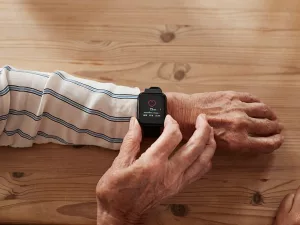

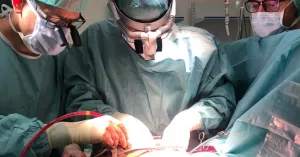
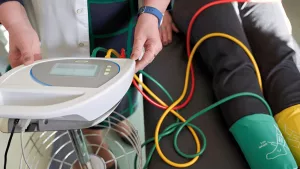





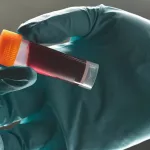

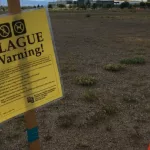



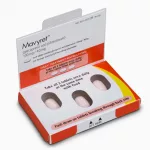


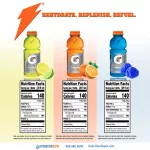

Leave a Reply
You must be logged in to post a comment.